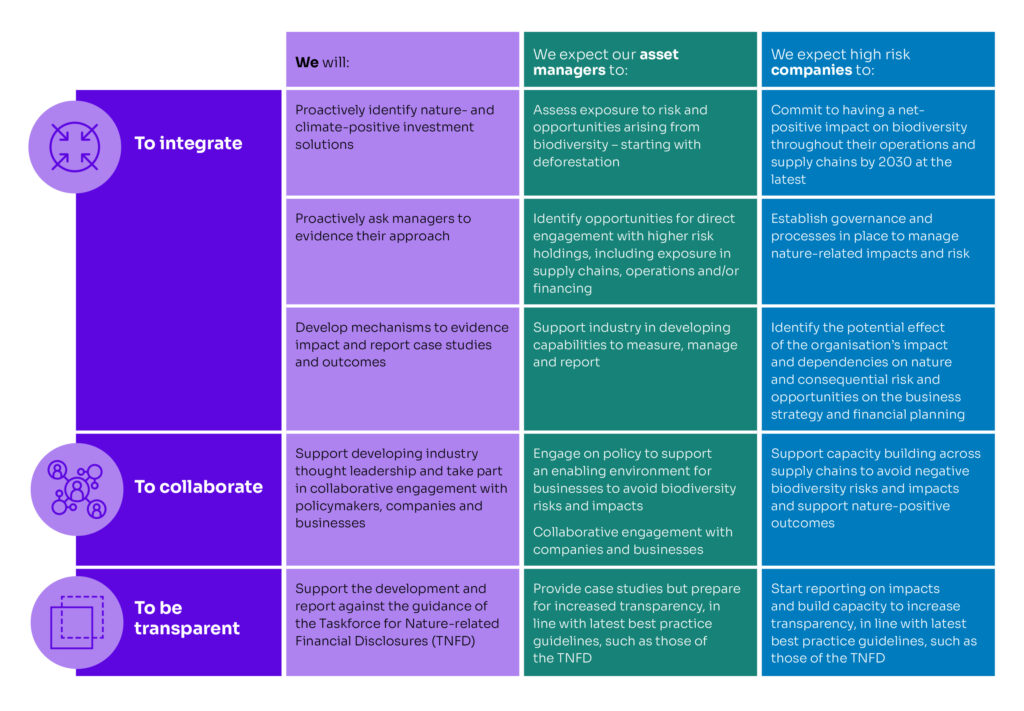Biodiversity & Nature

We seek to promote action to limit the loss of biodiversity and increase rejuvenation to deliver a net-positive impact on biodiversity in the investment opportunities we make.
Our approach to biodiversity & nature

Building capacity in our asset managers
Ballie Gifford is one of our asset managers who has also been tackling the issue and exploring how to analyse and integrate biodiversity related risks into their investment analysis. Building nature risk capability is one of the key asks of our asset managers from our strategy. Baillie Gifford are integrating their screening tool into their firmwide Climate Audit tool to ensure analysts are able to easily identify which holdings are potentially exposed to biodiversity impacts or dependencies (particularly deforestation) and which may therefore require further analysis and potentially engagement.
Biodiversity through engagement – working with Hermes EOS 2023, focussing on 15 companies from the food and beverage sector around the globe and outlining the risks of not addressing biodiversity loss.
Integrating biodiversity discussions to progress cross industry action. Material issues for engagement include regenerative agriculture, deforestation, sustainable proteins, water use, animal welfare, antimicrobial resistance, chemicals and pollution, and ocean health.
The key topic for Hermes EOS is deforestation, as it has the most related metrics and certification schemes across the industry.
Biodiversity & Nature Case Study: Stepstone, Infrastructure – Organic Farming

We hold MeadlowLark Lands Fund I in our Cycle 3 Infrastructure portfolio, aimed at creating a more sustainable food system. MeadowLark focuses on organic farmland, which seeks to improve soil health and organic matter and reduce GHG emissions from farming, with associated biodiversity, ecosystem and climate benefits.
The conversion of conventional farmland to organic, and sustained organic farmland practices, are expected to drive impactful environmental benefits from improved soil health and microbial activity that will result in improved biodiversity and ecosystems, The improved soil organic matter will allow for additional sequestering of carbon from the atmosphere increasing soil carbon. A further benefit of organic farming is the reduced usage and runoff of pesticides and synthetic fertilisers into water systems.
Investor coordination
We believe strongly that addressing this issue requires cross-industry coordination. In January 2024, the Taskforce for Nature-Related Financial Disclosures announced its list of early adopters at the World Economic Forum: Brunel is one of the early adopters. We have committed to adopt the new TNFD framework in 2025-6.
In February 2024, Brunel was included on the endorser list for PRI Spring, an investor stewardship initiative for nature that aims to halt and reverse global biodiversity loss by 2030.
Next steps
- Supporting developing industry thought Leadership, taking part in collaborative engagement with policymakers, companies and businesses
- Continuing to raise awareness
- Continuing to engage companies and our fund managers around the importance of managing plastics pollution risks and opportunities
- Using nature risk profile to assess exposure to nature-related risk